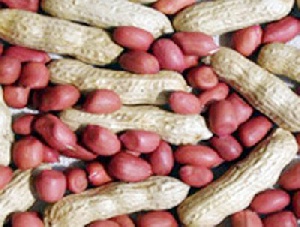About 50 groundnut farmers in the Savelugu/Nanton Municipality have received training on ways to prevent and control aflatoxin contamination of their produce to enable it to meet food safety standards requirements of the European Union (EU) markets.
The training, which formed part of the capacity building for export-oriented value chain operators in the groundnuts and cereals sector, was organized by the Ghana Export Promotion Authority (GEPA) with support from the Trade Related Assistance and Quality Enabling Programme (TRAQUE) and under the auspices of the Ministry of Trade and Industry with funding from the EU.
In all, 2000 stakeholders are to be trained on the prevention and control of aflatoxin contamination on groundnuts from May 12, 2015 to July 16, 2015 in 20 districts in four regions, including Brong Ahafo, Upper East, Upper West and Northern, with Savelugu/Nanton and Yendi Municipalities, Saboba, East Gonja and Central Gonja Districts being selected from Northern Region.
From 2009 – 2013, analytical results from EU control laboratories had reported aflatoxin levels exceeding its (EU) limits for groundnut and peanut butter from Ghana, necessitating the EU to impose import controls on groundnuts from Ghana with a new Health Certificate requirement and a 50 per cent level of testing to be conducted on all groundnut imports from the country hence the training to meet the standards.
Mr Gideon Quarcoo, the Chief Executive Officer of GEPA, whose speech was read on his behalf at the opening of the training at Diare, near Savelugu, on Tuesday, said GEPA believes that preventing and controlling fungus contamination had the tendency of enhancing groundnuts and cereals export quality to the international markets to enhance the country’s foreign exchange earnings.
Mr Quarcoo said this would make it possible to utilize the rich and abundant groundnut and cereals export resource potential available in the country.
He said even though the export of groundnut was hampered by enormous challenges, the crop had a high potential to contribute immensely in the non-traditional export sector and the economic development of the country hence GEPA’s efforts to encourage investments in the sector.
Mr Dramani Mahama, Deputy Director of Agriculture at the Savelugu/Nanton Municipality, urged farmers to store groundnuts properly to prevent the accumulation moisture in them, which leads to the aflatoxin contamination.
Mr Mahama also urged groundnut farmers to cultivate little acreage to enable them to better manage the fields to improve the quality levels of the crops.
Mr Tahiru Abukari, Coordinator of Savelugu/Nanton Groundnut Out-growers Association, thanked GEPA for the training, saying that, it would help them to improve on the quality levels of their produce from land preparation through planting to harvesting.
Regional News of Wednesday, 3 June 2015
Source: GNA
Groundnut farmers trained on aflatoxin prevention
Entertainment

Daddy Lumba's 'ghost' is tormenting us – Aunt cries out
Opinions










